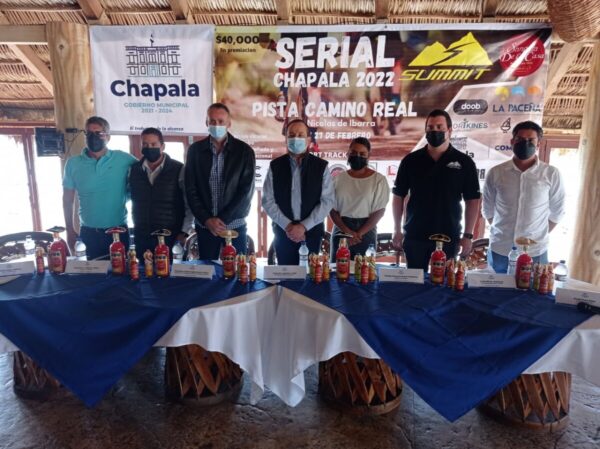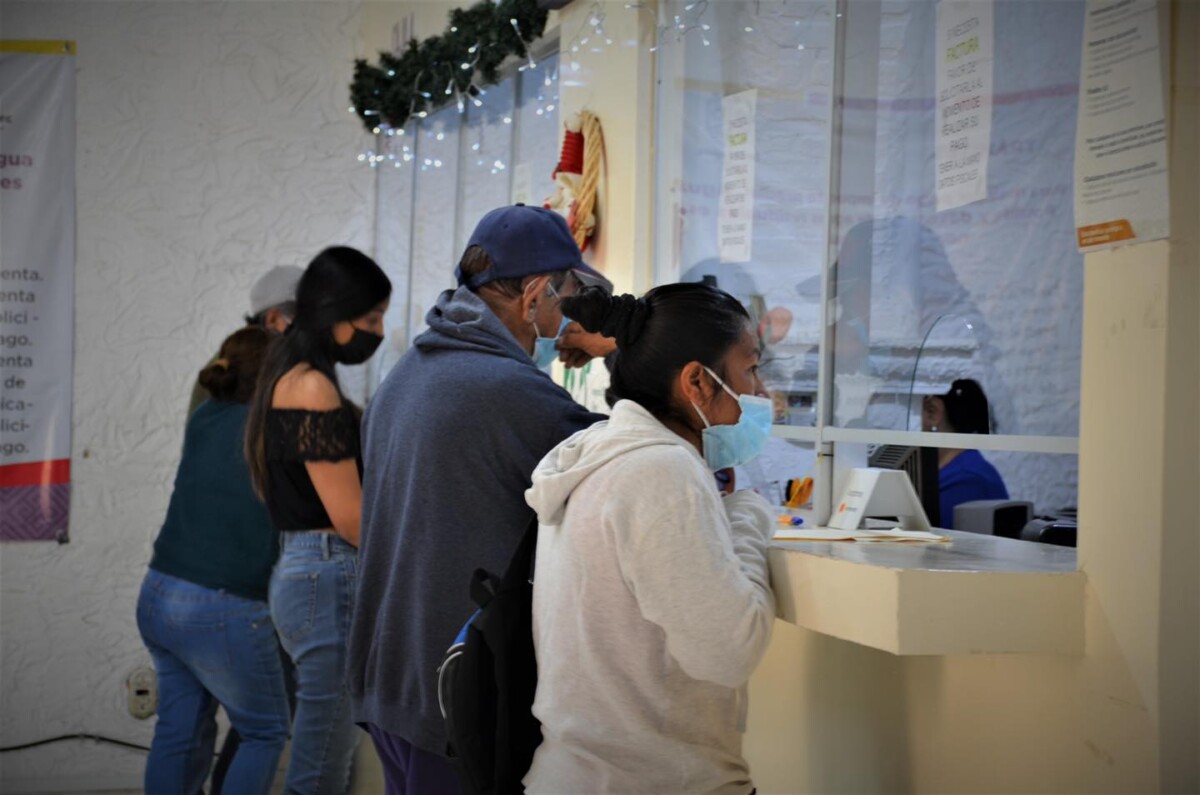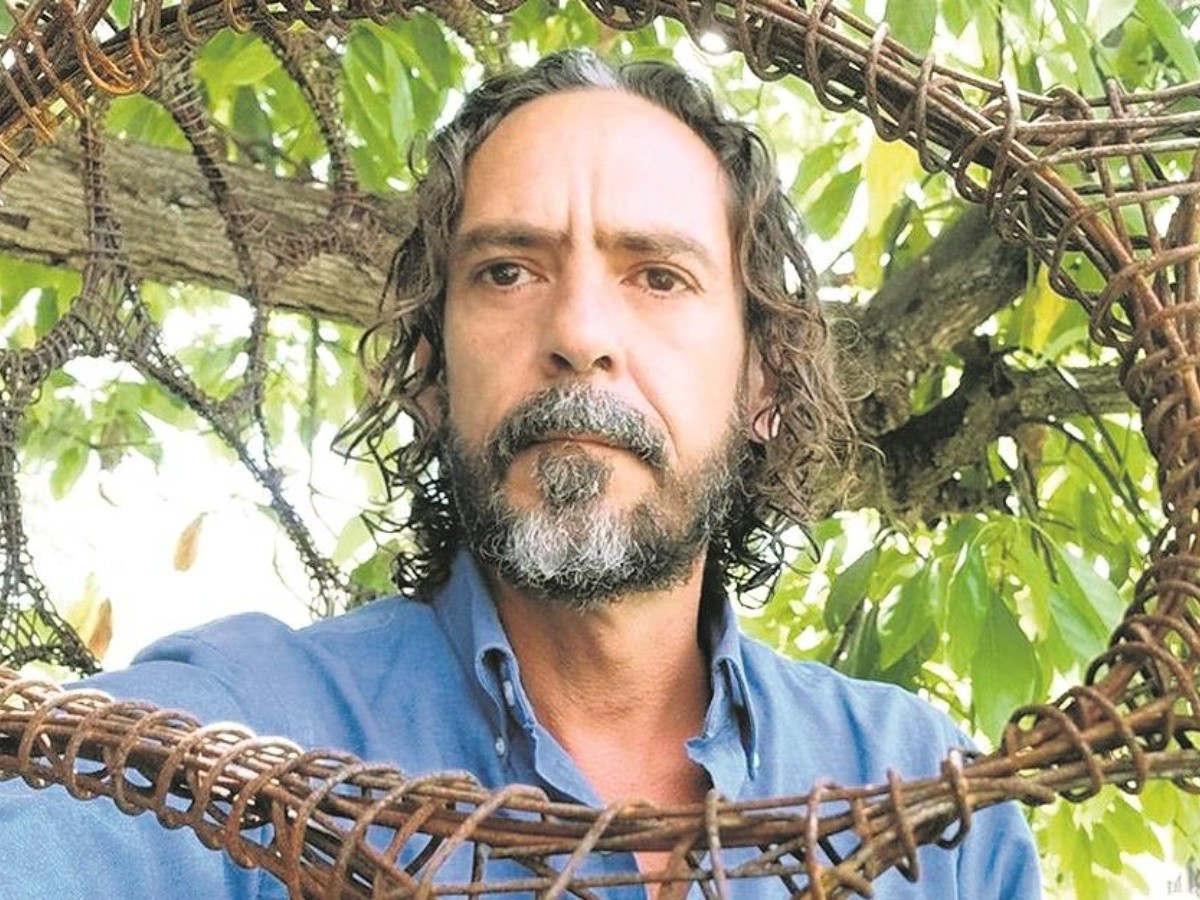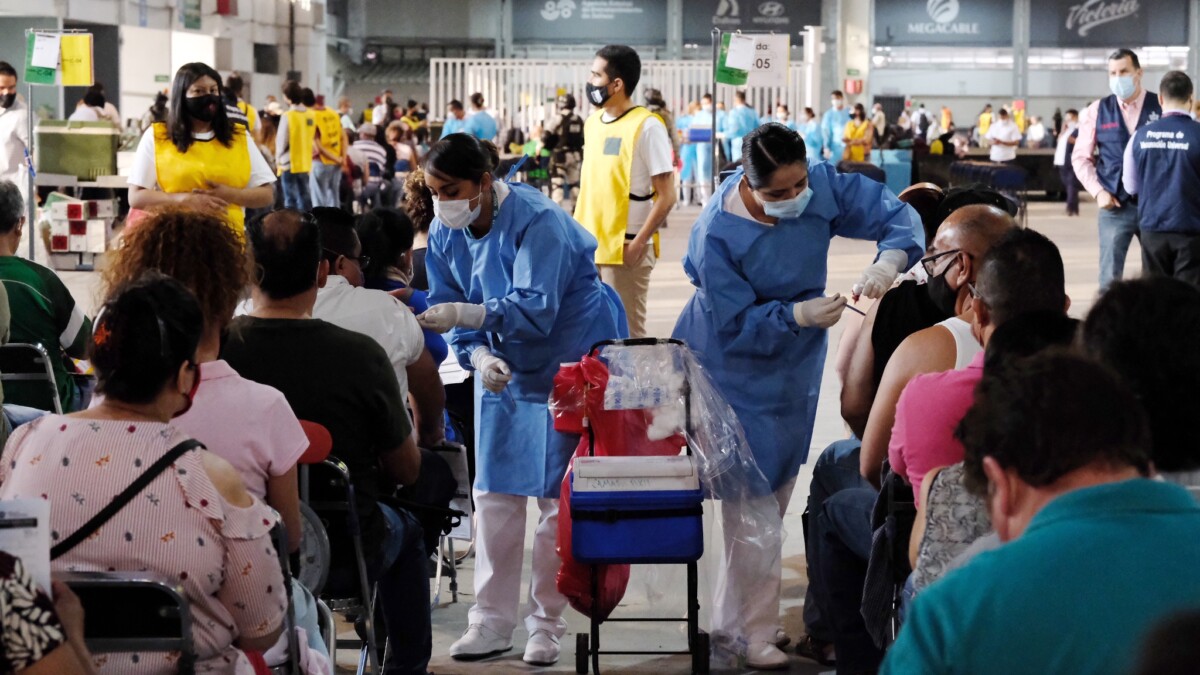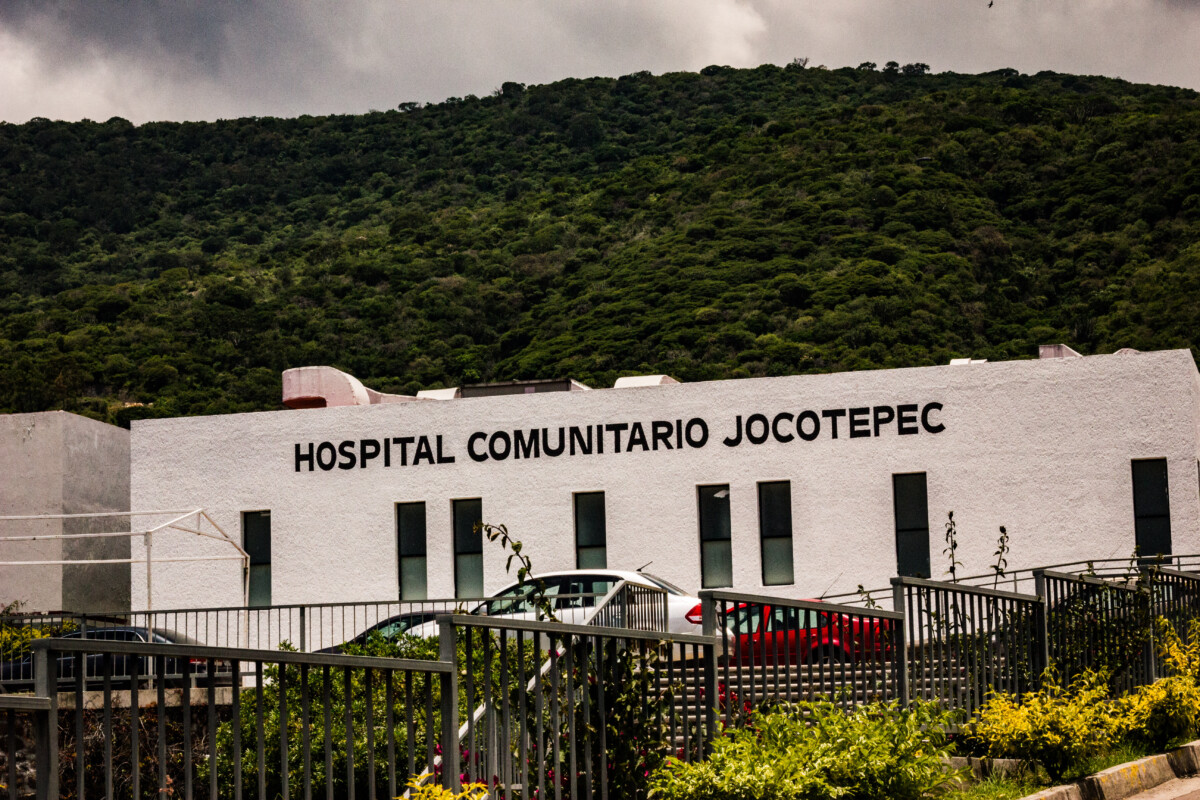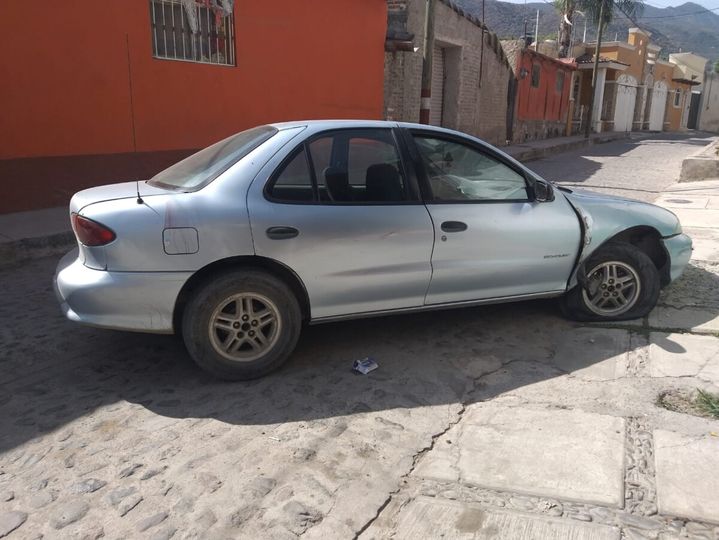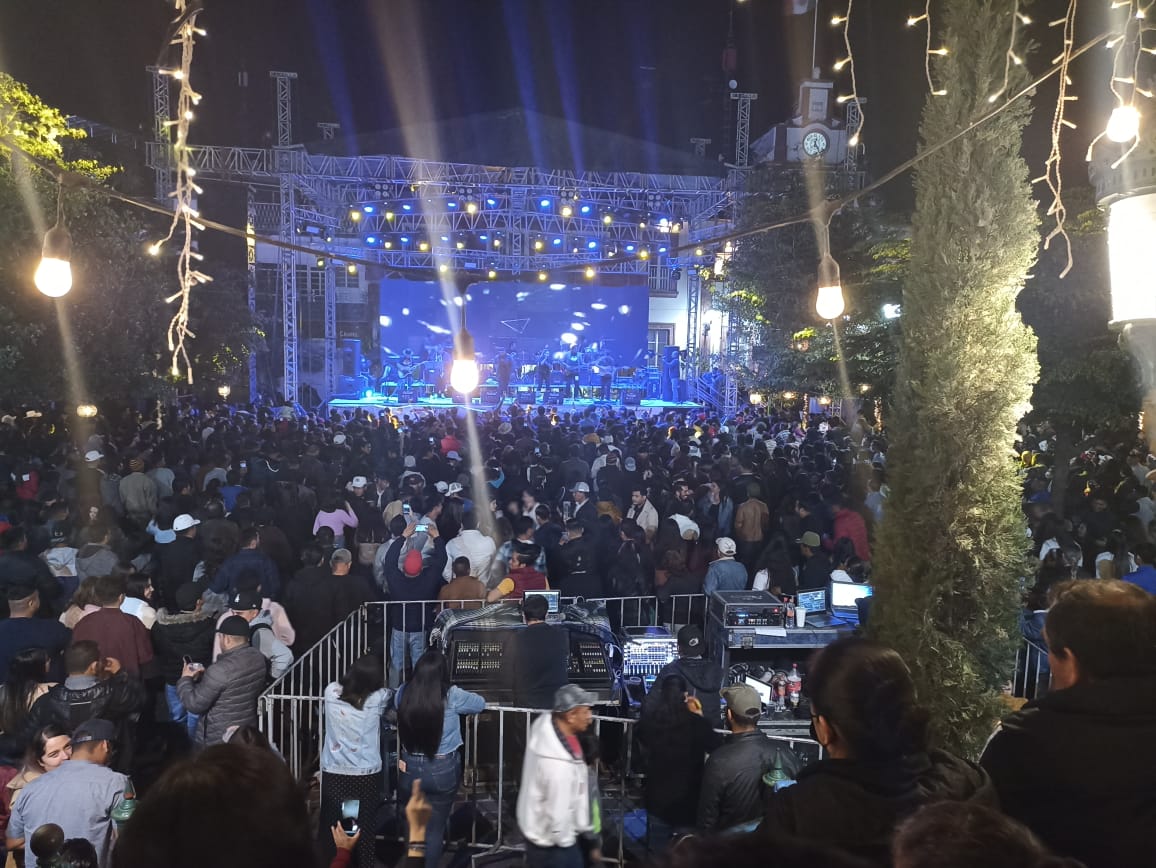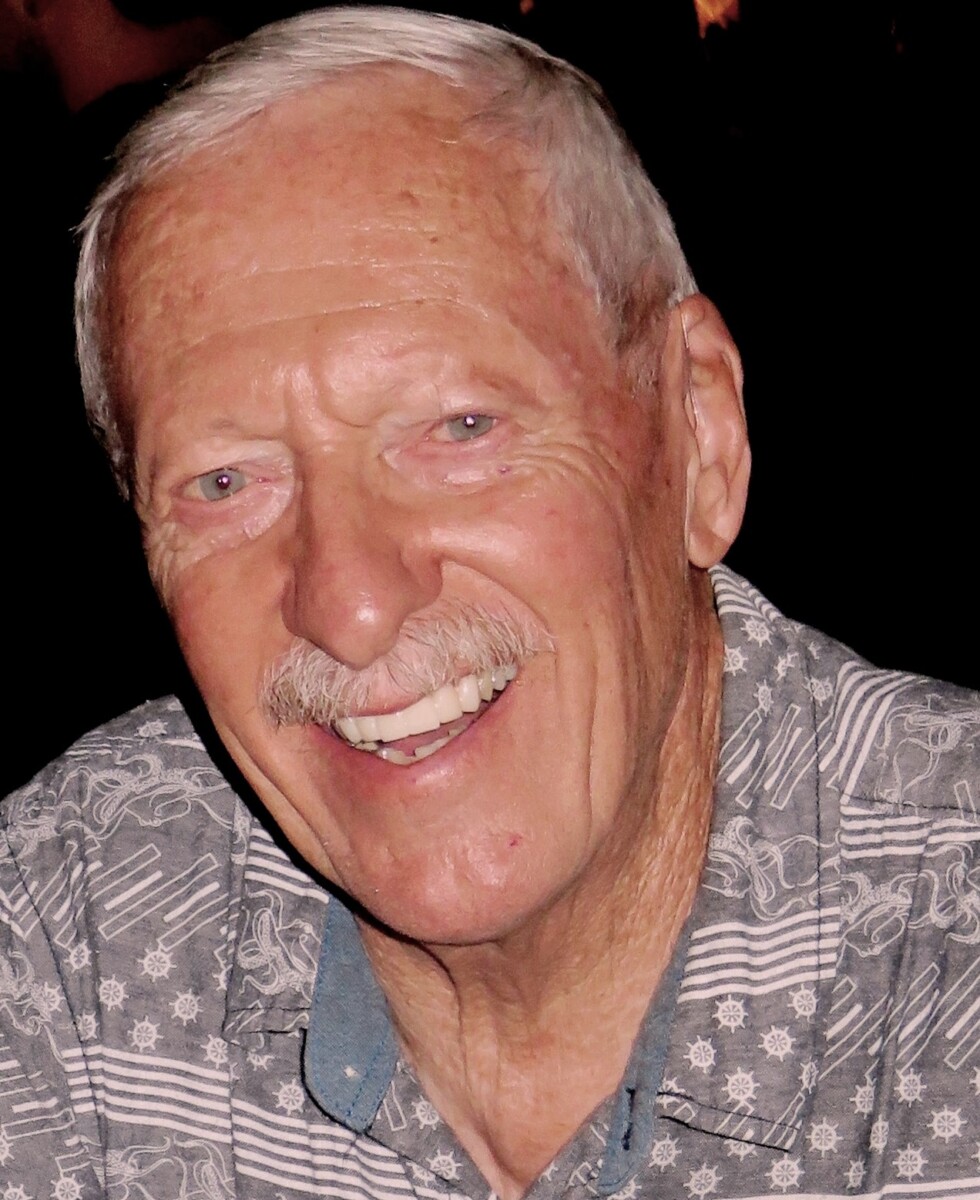Comunidad
Anuncia Chapala la primera carrera de ciclismo de montaña en la ribera
Jazmín Stengel.- Con una premiación de hasta 60 mil pesos en su primera etapa, el Ayuntamiento de Chapala, la Asociación de Ciclismo del Estado de Jalisco y la familia Rayo, anunciaron la primera competencia de ciclismo de montaña “Serial Chapala Summit 2022”.
Durante la conferencia de prensa que se llevó a cabo el martes 18 de enero, en la zona restaurantera de La Rampa del malecón de Chapala, los organizadores expusieron que el serial constará de cuatro etapas, se realizará en los municipios de Chapala, Ixtlahuacán de los Membrillos y Jocotepec, y será para seleccionar a los representantes de Jalisco en las competencias nacionales.
La primer etapa dará inicio en la cabecera municipal de Chapala, el 26 de febrero a las 4:00 de la tarde, comenzando con el circuito “Short Track”, es decir, dar vuelta a la manzana entre las calles Juárez, Zaragoza, López Cotilla y volver al punto de partida en Juárez, a la máxima velocidad posible.

Freddy Rayo, promotor del deporte y miembro del Comité Organizador del Serial Summit Chapala 2022, durante la presentación de la competencia.
En este circuito sólo podrán participar mayores de 18 años y serán divididos en seis categorías diferentes según su nivel deportivo, explicó Freddy Rayo Razo quien forma parte del Comité Organizador de la competencia. Las premiaciones planeadas para el primer día de competencias contarán con una inversión de 20 mil pesos.
El segundo circuito será de estilo “Cross Country” y se llevará a cabo el día 27 de febrero a partir de las 9:00 de la mañana al comienzo del Camino Real, en el poblado de San Nicolás de Ibarra, rumbo a la presa, con un recorrido de casi seis kilómetros.
Durante el segundo día, los atletas serán divididos en 25 categorías diferentes incluyendo las infantiles, juveniles, máster, élite y principiantes. La cantidad de las premiaciones para el segundo día de competencias será de 40 mil pesos.
La siguiente etapa se prevé realizar en Ixtlahuacán de los Membrillos, de manera tentativa el 1 y 2 de abril, sin embargo, aún se está esperando la confirmación de la Asociación de Ciclismo del Estado de Jalisco para su validación. Al igual, las fechas de Jocotepec en el mes de junio y la clausura que se planea con un maratón entre los poblados de Atotonilquillo, San Nicolás y Santa Cruz de la Soledad, aún están por definirse.
Mientras tanto, para la primera etapa, los organizadores esperan hasta 300 participantes con un aforo de 500 personas o más, por lo que se están tomando en cuenta las medidas de sanidad recomendadas por la Mesa de Salud Jalisco dentro de la logística del evento.
El propósito de esta actividad «más que atraer al turismo deportivo, es incitar a los jóvenes a participar en actividades realmente saludables», agregó el alcalde de Chapala, Alejandro de Jesús Aguirre Curiel, durante la conferencia. Ya que, como dijeron «un deportista más, es un drogadicto menos».

“Más que el turismo se trata de incitar a los jóvenes a participar”, dijo Alejandro de Jesús Aguirre Curiel, presidente de Chapala.
Es por ello que, los organizadores del “Serial Summit Chapala 2022” decidieron dar inscripciones gratuitas a todos los niños originarios de los municipios donde se esté llevando a cabo la competencia. Es decir, durante la primera etapa, los menores de 14 años de edad de Chapala podrán participar sin costo alguno.
Por otra parte, los adultos pagarán un monto de 100 pesos general en la modalidad “Short Track”; mientras que para el “Cross Country” las inscripciones están en 350 pesos para los adultos y 150 para los niños. Estos incluyen los paquetes deportivos con playera, número de competidor, GPS por cobertura en caso de accidentes y sellador 600ml PC Bikes.
«La dinastía Rayo, son pioneros en el ciclismo… Desde pequeño veo ese tipo de carreras donde ellos eran los organizadores y ahora, les deseo lo mejor en esta nueva modalidad de montaña», expresó al alcalde antes de despedirse, ya que, «se busca poner en los máximos niveles del ciclismo estatal al municipio de Chapala».
Inscripciones:
Las inscripciones ya están abiertas y hasta el día de la competencia, 26 de febrero a las 2:00 de la tarde. Ya sea en las instalaciones de Bicicletas Rayo, tanto en Ajijic carretera poniente 9b con el número de contacto 33 1292 4228; como en Chapala, calle Juárez 588 con el número de contacto 33 2130 0393. Para los atletas foráneos que desean participar se habilitó una cuenta en Bancomer con el número 4152 3137 9395 6066 y la línea telefónica 33 2791 6475.
Los paquetes deportivos de la competencia serán entregados el sábado entre las 4:00 y 6:00 de la tarde y el domingo de 7:30 a 8:30 de la mañana en sus respectivas mesas de inscripción, momentos antes de dar inicio.
Five percent tax increase for Jocotepec
City Hall bets on community outreach to improve tax collection. Photo: Courtesy.
Héctor Ruiz Mejía.- The municipality of Jocotepec approved a general increase of five percent in taxes for the fiscal year 2022, said Marcela Jiménez Góngora, director of the Treasury.
The new revenue law proposed by the Plenary of the Jocotepec City Council was approved by the Governor of Jalisco, Enrique Alfaro Ramírez, through the secretary of the H. Congress of the State, under decree number 28644/LXIII/21.
The Public Treasury of Jocotepec projects the estimated collection of 205,661,384 pesos during the fiscal year from January 1 to December 31, 2022.
Water service, like other services, will increase by five percent, except for «some users in very specific cases, who will have a higher percentage because there was some update in their accounts,» commented the interviewee.
In this case, the director suggested approaching the potable water directorate to specify the charges, since the intention is to encourage the community to bring current accounts.
However, in order to reach the collection goal, the Jocotepec City Hall has implemented new measures to generate an approach to the community and encourage people to pay their taxes on time.
A new online payment platform is available where a bot will display a menu with the property or water bill and will generate a reference to make the payment in OXXO, payment at cash registers, even via WhatsApp.
Also, the City Hall announced the new expanded hours to pay taxes that will include Saturdays from 9:00 am to 1:00 pm.
This after José Miguel Gómez López declared that the municipality was under a terrible administration of the collection issue, «there was chaos in the collection issue, such as water, many irregularities,» said the mayor.
While the new measures are expected to improve tax collection, the Treasury Director assured that they will wait until January 15 to have a comparison of how much the new measures helped the population to regularize and pay their taxes on time.
Translated by Kerry Watson
Access to Lake Chapala still closed 100 days after the beginning of Alejandro Aguirre’s administration
Callejón Azucena, used as a private garage by the Lomelí family, according to neighbors in the area.
Jazmín Stengel (Chapala). A little more than 100 days into the 2021-2024 administration and despite the fact that it was a campaign promise of the new president of Chapala, Alejandro de Jesús Aguirre Curiel, the accesses to the Lake are still closed to the general public. No information has been given as to when they will be opened.
Laguna investigated the current situation of the accesses to the Lake from Hidalgo Avenue in the municipal capital. They were closed to the public in 2020 during the administration of Moisés Alejandro Anaya Aguilar (2018-2021) and have remained closed.
At the time, Moisés Anaya (who is now a councilman) declared, «if we remove the gates we could be involved in a criminal offense, therefore, we are investigating thoroughly so as not to incur criminal charges.” The investigation remained open.

Callejón Las Palomas, according to former president Moisés Anaya this place was sold to private individuals.
Before the end of his administration, Moisés Anaya argued that the failure to remove the gates that prevented the fishermen of Barrio de Lourdes from entering was for the safety of the neighbors who had previously suffered robberies.
The National Water Commission (CONAGUA) clarified in its visit on October 28, 2020 that the opening of the alleys with access to the Lake on Hidalgo Avenue is an action that is the responsibility of the Municipality of Chapala. The previous Director of Ecology and Sustainable Development, José Guadalupe Jaime Ibáñez was also informed that these alleys are not in a federal zone and the review work should be headed by the Municipal Government. To date, no action has been taken.
The first alley ‘Azucena’ is being used as a garage for a private house. The cyclone mesh gate is next to an entrance, observed Laguna. According to neighbors, the alley is restricted by the Lomelí family, «they decide who has access and who doesn’t,» even though it is a public space.

Callejón del Arroyo was closed by Villa Hamburgo.
The next privatized space ‘Callejón Las Palomas’ has an entrance marked with the number 41, a doorbell and a security video camera. According to the former president Moisés Anaya during his administration, the place was sold as private property.
A small alleyway identified by neighbors as ‘El arroyo’ was also closed off with cyclone mesh and barbed wire, about ten meters from the sidewalk, just behind the bushes that cover their easy view. «This alley was taken over by Villa Hamburgo which is located next to it,» neighbors assured.
The owners of Villa Marijo, marked 266 Hidalgo Avenue, took possession of the unnamed alley next to their property, installing a blue metal fence that prevents passage to the lake. Initially the fence was exposed to view, now it is covered by a handful of «decorative» trees in pots.

Villa Marijo’s invasion of the alley next to the property.
Finally, the University of Guadalajara, with the Villa Montecarlo hotel, which for many years has had an alley on its property, joins this list of landowners blocking the way to the lake.
«It is very bad that they are blocked, because these alleys have been there for years and years. They give people access to the lake, the fishermen, tourists and others. The authorities do agree that the inhabitants of these houses block these streets», said a neighbor.
There are other neighbors who do not look favorably on this type of action; however, they understand that access to these spaces have facilitated illicit activities in the past, including drug use, urination in the streets, and house burglary.
Translated Nita Rudy
Culture Director for Ajijic and San Antonio resigns
Santiago Baeza, former Culture Director in Ajijic and San Antonio Tlayacapan. Photo: El Informador.
Jazmín Stengel. – After the unexpected departure of Santiago Baeza, who served as Culture Director in Ajijic and San Antonio Tlayacapan during the first hundred days of the current administration (2021-2024), the Culture Director for Chapala, Sergio Arturo Unzueta Flores, remains in his position and denied rumors of his resignation.
The departed Baeza declared exclusively for Laguna, “I could not be part of a situation in which the direction of culture was being pulverized.” He said he was grateful for the opportunities and support that Mayor Alejandro de Jesús Aguirre Curiel offered him during his short administration in the towns of Ajijic and San Antonio Tlayacapan.
Baeza surprisingly made public his resignation through a tweet on his personal account on January 8, saying: “I made the decision to resign from the municipality of Chapala. Three months of work there gave me reason, dividing the direction of culture in two was not viable. I step aside, so that @AlejandroA_C, the mayor, has the freedom to decide on that area, for the benefit of Chapala.”
Baeza said he believes such a sensitive direction cannot be split into pieces and noted, “I cannot bear the responsibility that this fraction generates.”
Despite his resignation, the ex-official Baeza invited the mayor to reconsider the structure of the dependency and return it to what it should be, “A solid direction of Culture, with resources, with strategy and with projects.”
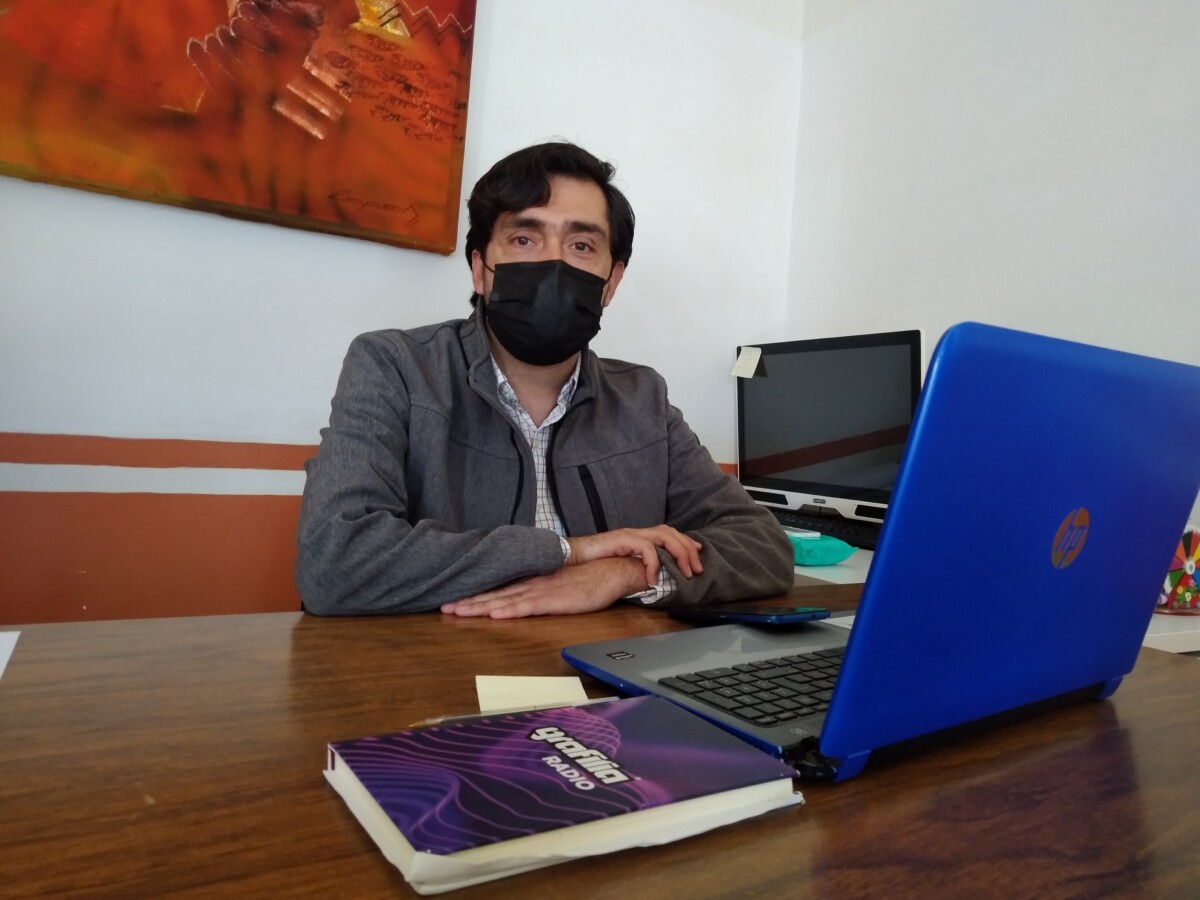
Sergio Unzueta, Culture Director in the municipal capital and the rest of the towns.
“The commitment was for 100 days, and those who know me know that I did it under protest,” said Baeza, who said he was surprised to realize that the Directorate of Culture was going to be divided in two during the current administration (2021-2024).
Because of this, Santiago analyzed from the beginning the viability of the situation. For him, beyond collecting a salary, the institution is more important than the people, so he opted to resign from his post.
“What was worked on during these three months has to be maintained,” Baeza said. “I am going to do it. I don’t need to be appointed to be able to give of myself to promote culture.”
He said the three months were very interesting from his personal perspective, and he asked that the cultural communication groups he formed in the municipality be maintained for the coordination of creatively gifted residents.
The former cultural official plans to summon the artists of the towns to make a project proposal to the Municipal Government with a totally civic aspect.
“Cultural promotion is of the community and we are all part of it, as a kind of network,” Baeza said, continuing to work with the Municipal Government as a citizen because, “We need them, but the government also needs us.”
Sergio Unzueta, in charge of the Directorate of Culture in th Chapala and the delegations, said, “We are still here and we are working,” during a talk with Laguna,in the Centro Cultural Antigua Presidencia (CCAP), in the municipal capital.
Translated by Mike Rogers
En Jalisco se aplicaron más de 346 mil vacunas contra COVID-19 en la segunda semana de 2022
Esta semana comenzará la inmunización de refuerzo para el grupo de 50 años y más. En la foto: Personal de salud aplicando la vacuna.
Comunicado de prensa (Jalisco).- Durante la segunda semana del 2022, en Jalisco se logró la aplicación de 346 mil 126 vacunas contra COVID-19, avanzando sustancialmente en la protección de adultos mayores y personal educativo que recibieron su dosis de refuerzo: se suministró la tercera vacuna (para el grupo de 60 años y más) y segunda dosis para quienes habían sido inmunizados con la unidosis de Cansino en su esquema original.
Estas vacunas fueron suministradas en tres macromódulos habilitados en el Área Metropolitana de Guadalajara (AMG): en el Auditorio Benito Juárez en Zapopan, en el Centro Administrativo Tlajomulco (CAT) y en el Centro Universitario de Ciencias Exactas e Ingenierías (CUCEI) de la Universidad de Guadalajara; así como en los diversos puntos de vacunación que se abrieron en las principales cabeceras municipales para cubrir todo el territorio estatal.
Del lunes 10 al sábado 15 de enero (semana epidemiológica 2 del 2022) fueron aplicadas 136 mil 080 dosis de la farmacéutica AstraZeneca; 123 mil 091 dosis producidas por el laboratorio Moderna, 86 mil 927 de laboratorios Pfizer-BioNTech y 28 de Sinovac.
El domingo 15 de enero concluyó la aplicación del refuerzo para el personal del sector educativo logrando cubrir al 100 por ciento de las y los trabajadores que se registraron en la plataforma (se abrirá una próxima jornada para quienes por alguna razón no pudieron acudir a esta convocatoria). Por lo pronto, esta semana se estarán aplicando refuerzos a personas de 50 años y más (incluirá a población de la tercera edad); segundas dosis a mayores de 18 años: de AstraZeneca (primera aplicada antes del 22 de noviembre), de Moderna (primera aplicada antes del 20 de diciembre) y de Sinovac (primera aplicada antes del 20 de diciembre); así como primeras dosis a adolescentes de 14 a 17 años y a adultos rezagados.
Para conocer detalles de las jornadas activas y apertura de nuevas convocatorias para jornadas de vacunación contra COVID-19 se recomienda estar atentos a los canales oficiales de la Secretaría de Salud y Gobierno del Estado o consultar la página https://coronavirus.jalisco.gob.mx.
Cabe destacar que la pandemia se mantiene activa y con tendencia al incremento de contagios por lo cual la Secretaría de Salud Jalisco (SSJ) invita a reforzar las medidas de prevención:
- Usar cubrebocasadecuadamente en espacios cerrados.
- Lavarse frecuentemente las manoscon agua y jabón o usar gel alcohol al 70 por ciento.
- Evitar espacios cerrados aglomerados y lugares queincumplan las medidas de prevención.
- En caso de presentar síntomas como tos persistente, dificultad respiratoria, fiebre que no cede o la oxigenación en sangre disminuye a menos de 92 debe acudir a una unidad de urgenciasy no esperar una prueba confirmatoria de COVID-19.
A personas con síntomas respiratorios se les pide mantenerse aisladas y reforzar el uso de cubrebocas en tanto acceden a una prueba de detección. Si resulta positivo mantener el aislamiento diez días o hasta no tener síntomas o siete días de ser asintomáticos.
ACUMULADO CASOS SEMANAL
A la semana epidemiológica número 2 del año (del 9 al 15 de enero de 2022), se han acumulado 425 mil 357 casos confirmados de COVID-19 (16 mil 011 contagios nuevos). En este periodo se acumulan 17 mil 711 defunciones (47 durante el periodo citado).
| RADAR JALISCO
CASOS DE COVID-19* |
||
| Casos | Semana 2 | Acumulados** |
| Casos confirmados*** | 16,011 | 425,357 |
| Casos descartados | 33,395 | 1,735,142 |
| Defunciones*** | 47 | 17,711*** |
Fuente: Secretaría de Salud Jalisco
*Corte semana epidemiológica 2 (del 09 al 15 de enero de 2022).
**Incluye información de los laboratorios del SISVER, HCGFAA, HCGJIM, UdeG, laboratorios privados y pruebas rápidas.
***Se incluyen casos confirmados y defunciones por asociación y dictaminación clínico-epidemiológica.
| AVANCE DE VACUNACIÓN EN JALISCO
SEMANA EPIDEMIOLÓGICA 2* |
|||||
|
ASTRA ZENECA
|
MODERNA
|
PFIZER – BIONTECH
|
SINOVAC
|
CASINO |
TOTAL |
| 136,080 | 123,091
|
86,927 | 28 | 0 | 346 mil 126 |
Fuente: Secretaría de Salud Jalisco
Clinics Prepare for New Covid-19 Wave
As of January 13th, seven out of ten patients who were seen for a suspected case of Covid-19 tested positive at the Jocotepec Community Hospital. Photo: File.
Héctor Ruiz Mejía: Hospitals in the municipality of Jocotepec are preparing for a new wave of coronavirus cases after the Christmas and Señor del Monte festivities, medical authorities asserted.
As of January 13th, seven out of ten patients who were seen for a suspected case of Covid-19 tested positive at the Jocotepec Community Hospital.
Now they are faced with the forecast of a 35 percent increase in the number of cases, estimates the municipality’s medical authorities.
«Fortunately, the vaccine has had an beneficial effect and the severity of the cases have decreased; however, we are preparing the facilities in case treatment is needed», assured the medical authorities of the Community Hospital.
They explained that there are currently six beds available in case of pneumonia complications from the coronavirus or for patients who may need oxygen supplementation.
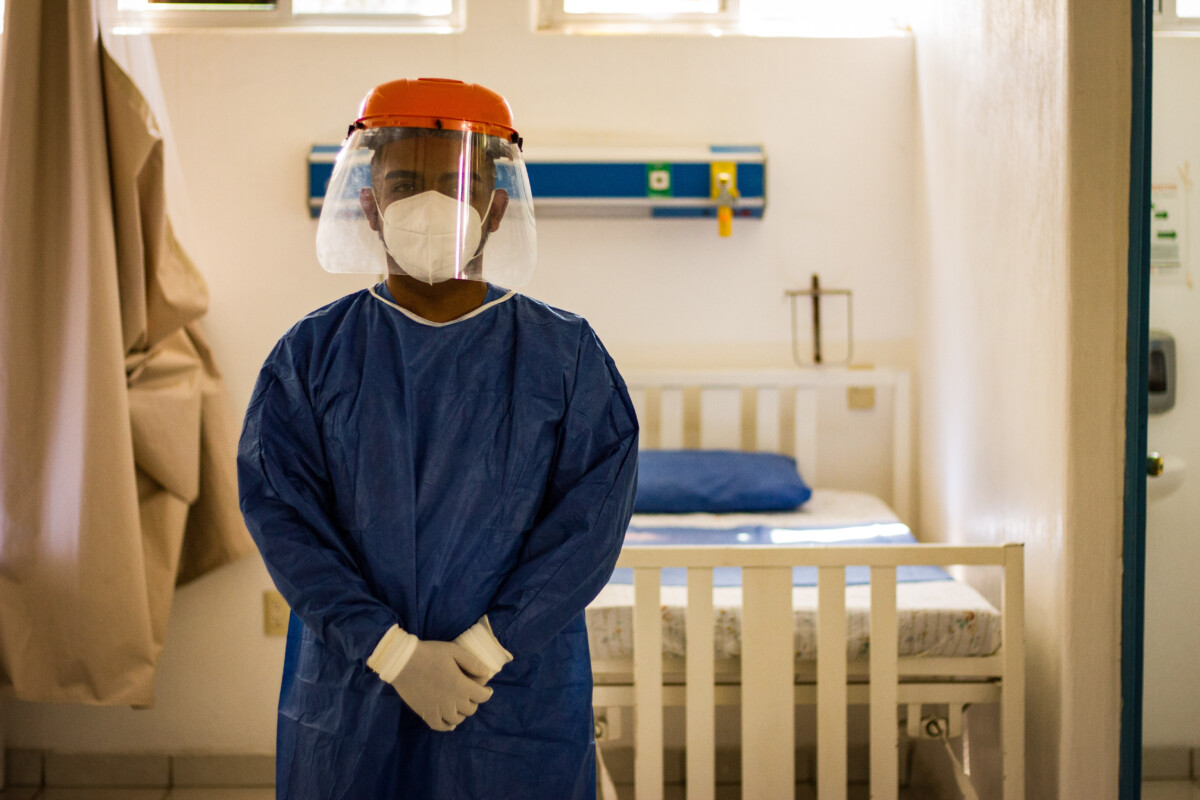
A 35 percent increase in coronavirus positivity is expected in the next two weeks. Photo: File.
For the past week, the number of positive results at The Rafael Gómez Rodríguez clinic has remained at an average of around three confirmed COVID-19 patients per day, explained Ricardo Alvarado, director of the clinic.
Although he agrees with the «favorable» observations of the Community Hospital regarding the seriousness of the illnesses, he showed his concern regarding the outlook for the increase in infections that are predicted, following the festivities of the Señor del Monte.
«Unfortunately, it has been very difficult to stop this spread of the disease, and given the effort that families from Jocotepec had already made, we don’t understand why the decision was not made to cancel the festivities. Even so, sanitary protocols were maintained at the festivals,” commented the doctor. However, the doctor himself acknowledged that it was almost impossible to maintain a healthy distance during the festivities.
Given the estimate of medical authorities of a 35 percent increase in positivity for the next few weeks, the Rafael Gómez Rodríguez clinic has already adapted a special room for extra coronavirus patients.
The space will have eight beds and the necessary medical supplies, including oxygen in case patients arrive with complications in order to avoid a past hospital occupancy crisis.
Medical authorities urged the community to evaluate the need to attend the upcoming festivities. If you attend, be fully aware of the risk and take all necessary precautions.
Translated by Colleen Beery
Stolen vehicle recovered in Ixtlahuacán
The vehicle, a 1999 model Chevrolet Cavalier, was recovered.
Officers of the State Security Secretariat recovered a car that had been stolen on Wednesday, January 13, 2022 in Ixtlahuacán de los Membrillos. The officers, who were carrying out surveillance work in the area, arrested the man driving the car who was found to be in possession of prohibited substances.
State police officers were patrolling the downtown area of the municipality when a woman approached them to notify them that her 1999 Chevrolet Cavalier had been stolen the night before.
During their search, the officers spotted the vehicle at the intersection of Guerrero and Cuauhtémoc streets. Upon being detected, the man driving the car tried to run over the officers, so they fired shots at the tires of the car to apprehend him safely.
Translated by Rebecca Zittle
Ajijic locals say that the Coffee, Chocolate and Wine Festival was not affordable
The Coffee, Chocolate and Wine Festival was held on January 8 and 9 at the Ajijic Malecon.
Sofía Medeles (Ajijic, Jal.)– Although the «Coffee, Chocolate and Wine Festival» was well attended by tourists, the “Ajijitecos” or local residents didn’t like the event because they felt that this type of festival does not help local commerce and only benefits a few.
According to 14 locals interviewed at the festival held last weekend (January 8 and 9), it is the foreign merchants who are taking advantage of the Pueblo Mágico designation, which in fact doesn’t benefit local commerce, but rather harms it, in addition to the fact that the prices are too high for local people.
«They are only using the Pueblo Mágico designation to benefit a few, because not all of us produce the kind of things they sell at these festivals, and besides, they are expensive. Only tourists or Americans can afford to buy things from there. Many of us would like festivals that are really made for ajijitecos,» said Luis, who was present on the malecón with his family while the event was taking place.
The event, installed on the Ajijic boardwalk corridor, was attended by around 50 exhibitors, who competed with the merchants who set up shop on the boardwalk every weekend.
The street merchants interviewed pointed out that there was a lot of tourism, but sales did not go well, since the public concentrated on the festival, which offered a variety of products ranging from food and handicrafts to art pieces.
“Yes, there are a lot of people, but we’ve hardly sold anything. Look, those from the festival sell the same things I do, and that’s why I haven’t sold much,» complained one of the street merchants who set up shop in the handicraft corridor on one side of the Ajijic pier.
Ignacio, an Ajijic native, said that people don’t even come to browse, thinking that these are products they can’t afford to buy. «One prefers not to get involved in these things. Apart from the fact that there are always a lot of people who must crave these products, and I say crave, because when you ask, they tell you that a sandwich, a pair of flip-flops, or a sweet is more than 100 pesos. That’s very different, for example, from the sales that take place during the November holidays, where you know that you will be able to afford many things.”
A woman named Brenda García, originally from San Miguel de Allende, commented that something similar happens where she comes from, and stated that she believes that this happens in places where there is a lot of tourism. «What happens in Ajijic is a controversy that also happens in San Miguel de Allende, a tourist town in Guanajuato. Suddenly there are events that are focused more on tourism, or who can spend. The difference is that over there they are usually held in private places such as restaurants or vineyards, thus better targeting the public they want.”
Maximiliano «Max» Macias Arceo, in charge of the office of the Ajijic delegation, commented that one of the main problems that may cause these opinions are the high prices of the exhibitors, but that it’s not possible to compare products that companies manufacture to the handmade products.
«Between a product from an established company and one from an artisan there is no point of comparison. We understand that the prices they charge don’t suit us, but we must also consider that they come from distant places, such as Morelia, Yucatán, Oaxaca, Michoacán, and they have to cover those large expenses, so we can’t put conditions on their prices. Even so, I hope that in the future we can have more balanced events, so that we all have the opportunity to buy something we like.»
The Coffee, Chocolate and Wine Festival was born in Patzcuaro, Michoacan, a little over three years ago, and this year, for the first time, it is being held in Jalisco. The event brought exhibitors from various parts of the country – for example, Oaxaca, Mérida, Yucatán, Michoacán – and not only exhibited food, but also crafts and local art.
Translated by Sandy Britton and Patrick O’Heffernan
Jocotepec patron saint festivities continued despite new state mandate
An average of four thousand people participated in the Eclectic Fest 3.0 alone on Monday, January 10. Photo: Courtesy.
Héctor Ruiz Mejía – Despite the increase in the positivity rate from 7.2 percent to 23.4 percent in Jalisco for the coronavirus, the municipality of Jocotepec decided to continue with the festivities for the “Señor del Monte.”
Even though the Health Ministry and the Governor of Jalisco, Enrique Alfaro Ramírez, announced new health measures effective on January 14, in which all types of events such as patron saint festivities, carnivals and massive events were canceled, Jocotepec decided not to cancel the ongoing festivities. «I cannot cancel the entire economy. The decree indicates a start date and it must be an individual choice to attend or not,» said José Miguel Gómez López.
The municipal president explained that the new health measures were announced when the festivities were already well underway. The festival began on January 6th with the “Entrada de Cera” parade, so the festivities were allowed to continue.
«Two years ago when the pandemic started, people did not know how to take care of themselves. Today, the population is aware of the correct safety measures. They already have all the knowledge necessary to protect themselves and can take individual responsibility for whether to go out or not,” added Gómez.
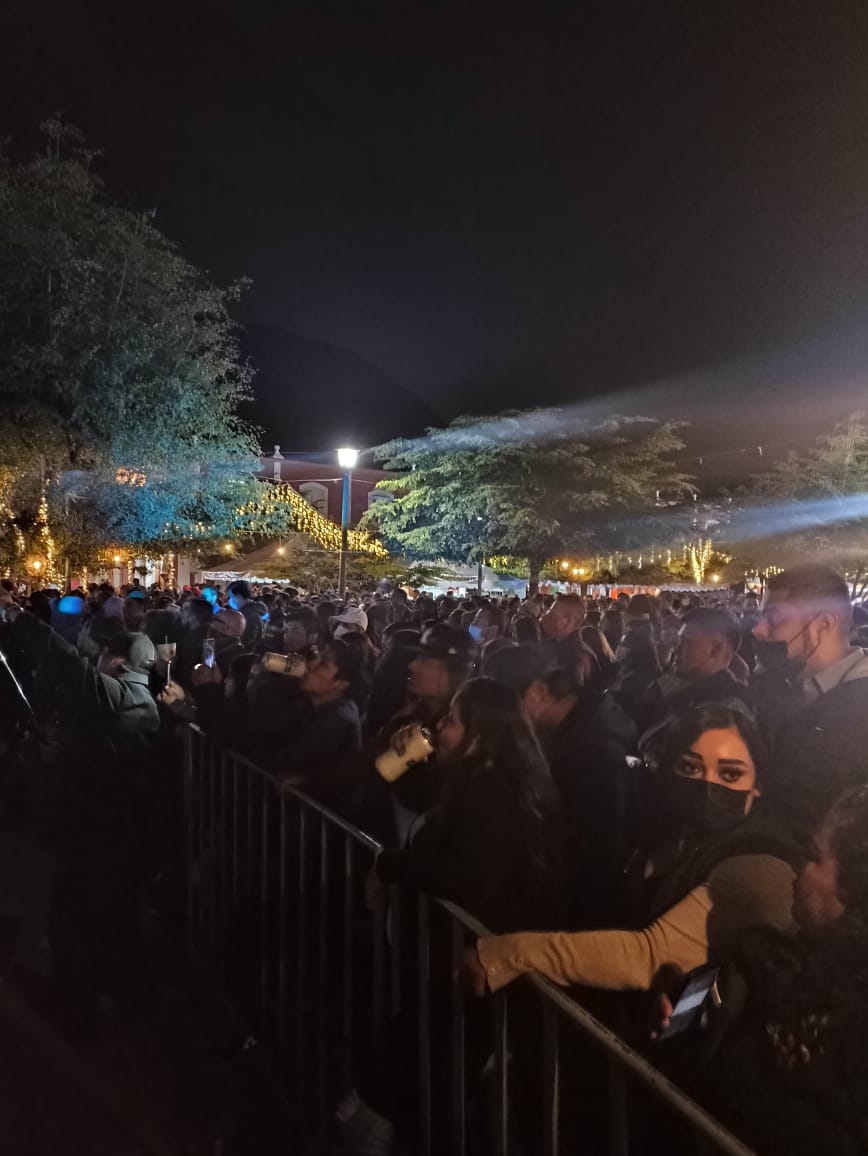
The President of Jocotepec said that it would have been worse to cancel the business generated by the festivities. Photo: Héctor Ruiz.
On Tuesday, January 11, the Civil Protection and Firefighters Unit (UPCB) of Jocotepec, in conjunction with municipal authorities, reported that at least 30 percent of the merchants did not abide by the appropriate safety measures.
«The incidents that persisted the most, where participants were given a warning to comply with the measures, was in the use of masks and antibacterial gel,» explained municipal authorities.
They also explained that skepticism regarding the use of masks and the pandemic itself was prevalent among the elderly, who are one of the segments of the population most vulnerable to the disease.
The municipal president condemned accusations against him for being negligent and irresponsible for allowing the festivities to continue. He pointed out that the municipality has taken all possible measures to safeguard the well-being of the inhabitants of Jocotepec. However, “it is the people who can voluntarily decide to respect the measures or not,” he said.
Translated by Colleen Beery and Kerry Watson
Opinion: Looking at life in Lakeside
By Patrick O’Heffernan
Michi-Cihualli is the mythological goddess who symbolizes the essence of the waters and lands of Lake Chapala. According to the legend, she is the mediator of good weather and the queen of the wind- she blows the gales of the four cardinal points, enabling the fishermen to know the direction of the squalls on the lake and t and farmers the good weather for corn.
But an important part of the legend of Michi-Cihualli is her first appearance: when the ruling tribe practiced human sacrifice and threw children into hot springs, Michi-Cihualli became enraged and created powerful winds, whirlpools, clouds of ash and eventually an earthquake to stop the desecration of her waters.
We don’t sacrifice humans any more, but we are sacrificing the Lake itself and the Ribera – the lands of Lake Chapala — with pollution, traffic, illegal development, and poverty. And Michi-Cihualli is again blowing her powerful breath over the lake in warning, only this time it is not winds she is raising, but a rekindling of the values she taught and resistance to those who would float them.
Next week, on January 20, 21, and 22, her winds will gust from one of her spiritual homes in Ajijic, La Cochera Cultural, in a three-day Festival of Michi. A residence for artists of all kinds, La Cochera Cultural is curated by Antonio López Vega, an artist who has spent a lifetime capturing and chronicling the spirit of Michi-Cihualli in painting and sculpture. The Festival he is curating at La Cochera Cultural will use film, art, music, dance, and discussion to explore the spirit and lessons of Michi-Cihualli and what is happening today in Ajijic.
In a separate but parallel effort, a group of musicians and artists are considering a concept paper Espiritu de Music y Art, to bring the lifeforce of Michi-Cihualli to Ajijic and San Antonio-Tlayacapan all year round through a marriage of art and music. They are responding to call by Ajijic Culture Director Santiago Baeza (who has just resigned) for events at local venues bringing together two of Ajijic’s greatest assets: artists and musicians.
In another separate but parallel effort, the Pueblo Mágico Ajijic Committee is anticipating an infusion of money for ventures enhancing and promoting the magic of the pueblo. While it waiting for funds, the Committee is developing plans and evaluating projects for their contribution to the Pueblo Mágico designation.
© 2016. Todos los derechos reservados. Semanario de la Ribera de Chapala
